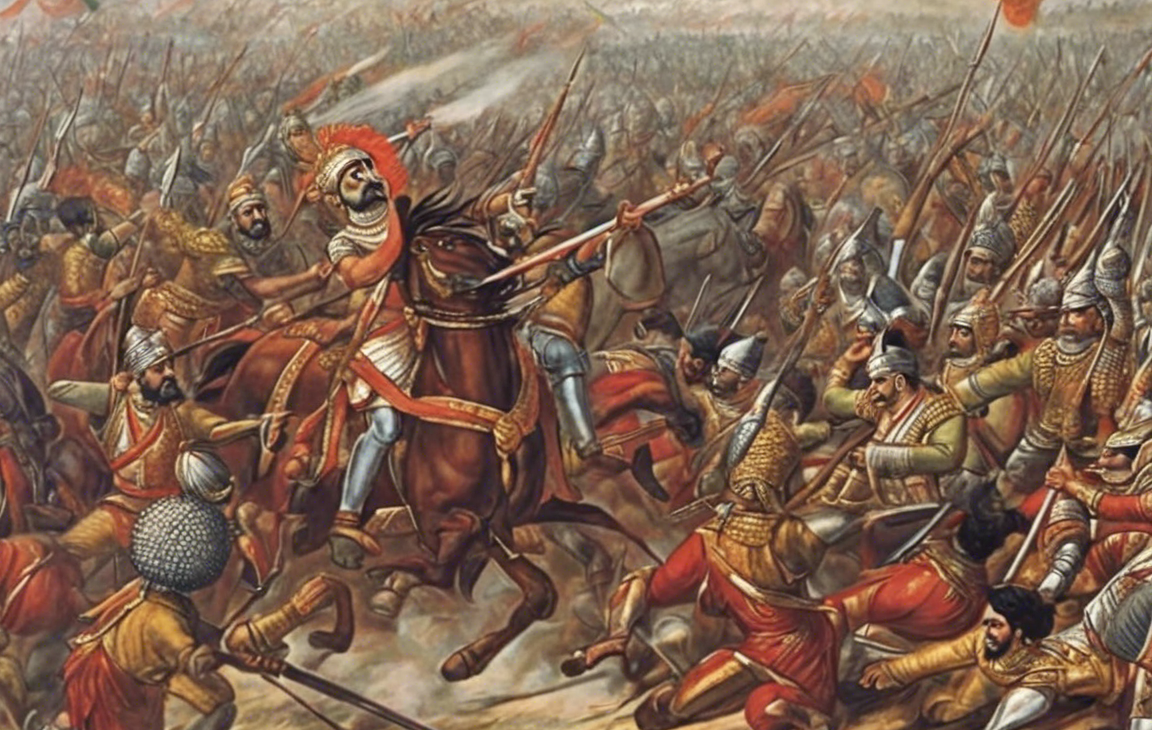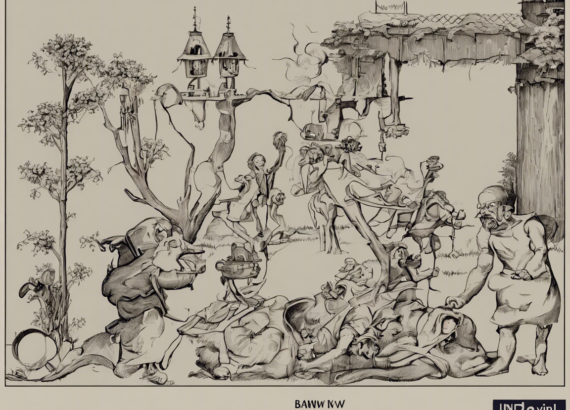The Battle of Buxar, fought on October 22, 1764, is considered a pivotal moment in Indian history as it marked the end of the Mughal Empire’s influence and paved the way for British dominance in India. This decisive battle took place near the town of Buxar in present-day Bihar, involving a coalition of Indian rulers led by the Mughal Emperor Shah Alam II against the British East India Company. The outcome of this battle had far-reaching consequences that reshaped the political landscape of the Indian subcontinent.
Background:
The decline of the Mughal Empire in the 18th century provided an opportunity for the European powers, primarily the British, French, and Dutch, to expand their influence in India. The East India Company, originally established for trade, had gradually transitioned into a formidable political and military force in the Indian subcontinent by the mid-18th century. The growing power and ambition of the East India Company posed a direct challenge to the existing Indian rulers and their authority.
Causes of the Battle:
Several factors contributed to the eruption of the Battle of Buxar. The struggle for power and control over the lucrative Indian territories, the weakening Mughal Empire, and the ambitions of the British East India Company all played a significant role. The dual government system established by the Mughals, where the Company had to seek permission for conducting trade and collecting revenue, led to tensions and conflicts that eventually escalated into open confrontation.
Key Players:
-
Mughal Emperor Shah Alam II: The nominal leader of the Indian coalition, Shah Alam II, sought to assert Mughal authority and challenge the increasing dominance of the British.
-
The British East India Company: Led by Major Hector Munro, the East India Company’s forces were well-trained and well-equipped, representing the growing influence of the Company in Indian affairs.
-
Indian Allies: The coalition of Indian rulers included Shuja-ud-Daula, the Nawab of Awadh, and Mir Qasim, the Nawab of Bengal, who joined forces with the Mughal Emperor to repel the British.
The Battle:
The Battle of Buxar was a decisive confrontation that took place over several hours on the battlefield near the Ganges River. The British forces, using superior strategy and firepower, managed to outmaneuver the Indian coalition. Despite initial resistance, the Indian forces were eventually overwhelmed, leading to a crushing defeat for the Mughal Emperor and his allies. The Battle of Buxar firmly established British supremacy in India and paved the way for the subsequent British Raj.
Aftermath:
The outcome of the Battle of Buxar had profound implications for India. The Treaty of Allahabad, signed after the battle, granted the East India Company the diwani rights of Bengal, Bihar, and Odisha. This gave the Company control over taxation and revenue collection in these regions, further consolidating its power. The defeat of the Indian coalition also shattered any hopes of a unified resistance against British expansion, allowing the Company to expand its influence and territories in the coming years.
Legacy:
The Battle of Buxar is regarded as a turning point in Indian history as it marked the beginning of British political control over large parts of the subcontinent. The defeat of the Indian coalition exposed the vulnerabilities of the existing Indian rulers and highlighted the military and technological superiority of the British forces. The events that followed the Battle of Buxar laid the groundwork for the eventual colonization of India by the British and shaped the course of Indian history for the next century.
Frequently Asked Questions (FAQs):
-
What led to the Battle of Buxar?
The battle was primarily a result of the power struggle between the British East India Company and the Indian rulers over control of territories and resources in India. -
Who were the main participants in the Battle of Buxar?
The main participants were the British East India Company led by Major Hector Munro and the Indian coalition consisting of the Mughal Emperor Shah Alam II, the Nawab of Awadh, and the Nawab of Bengal. -
What were the consequences of the Battle of Buxar?
The battle led to the signing of the Treaty of Allahabad, which granted the East India Company significant political and economic powers in India, laying the foundation for British colonial rule. -
How did the Battle of Buxar impact Indian history?
The battle marked the beginning of British political dominance in India, leading to the eventual colonization of the subcontinent and shaping its history for the next two centuries. -
What lessons can be learned from the Battle of Buxar?
The battle underscores the importance of unity and strategic planning in the face of external threats and highlights the consequences of underestimating the capabilities of an adversary.
In conclusion, the Battle of Buxar stands as a crucial chapter in Indian history that symbolizes the shift of power from indigenous rulers to foreign colonizers. The legacy of this battle continues to influence the collective memory and historical narrative of India, serving as a reminder of the complex dynamics that shaped the subcontinent’s past.






